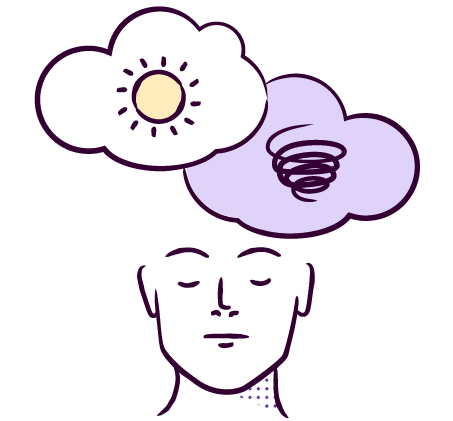Being active
“Exercise helped me cope. I got on my bike, I ran, I did exercise classes. I found it such a great release. It was lovely to get out in the fresh air, and to calm my mind.”
Physical health and mental health are closely connected. Studies show that taking care of your physical health improves mental wellbeing, and vice versa. If one declines, it can affect the other.
A more holistic approach also helps with managing and recovering from mental illness.
Some of the key physical health factors that can promote mental wellbeing are:
- a balanced diet
- proper sleep, and
- cutting down unhealthy habits, such as smoking, alcohol and drugs.
But one of the best ways to look after your physical and mental wellbeing is being active.
Regular physical activity can be a good way to boost your mood, reduce stress, and even improve sleep. It is also known to manage symptoms of depression and anxiety and improve your memory.1
Physical activity doesn't have to be exercise. It could be anything you do in your day-to-day life, such as running errands or doing housework.
Research shows that playing recreational sport 1-3 times a week can reduce distress by 34%.2
Finding the right activity
Different people need different levels of physical activity and exercise. You may have physical limitations or a condition that make physical activity harmful or difficult. Or you may be going through a stressful time. It helps to talk to your doctor to determine what kind of physical activity is right for you. If you're able, you can start small. Light gardening or chores around the house could be a start. If you prefer group activities—indoors or outdoors—team sports, yoga, or dancing may be the way to go. Finding a friend, or even a pet, to walk with can make physical activity easier and more fun.

What should I do now?
Just like your physical health, it’s easy for your wellbeing to get knocked off balance. When that happens, it’s important to know how to spot the signs and what to do.
Take our quick quiz to find out what might help you.

